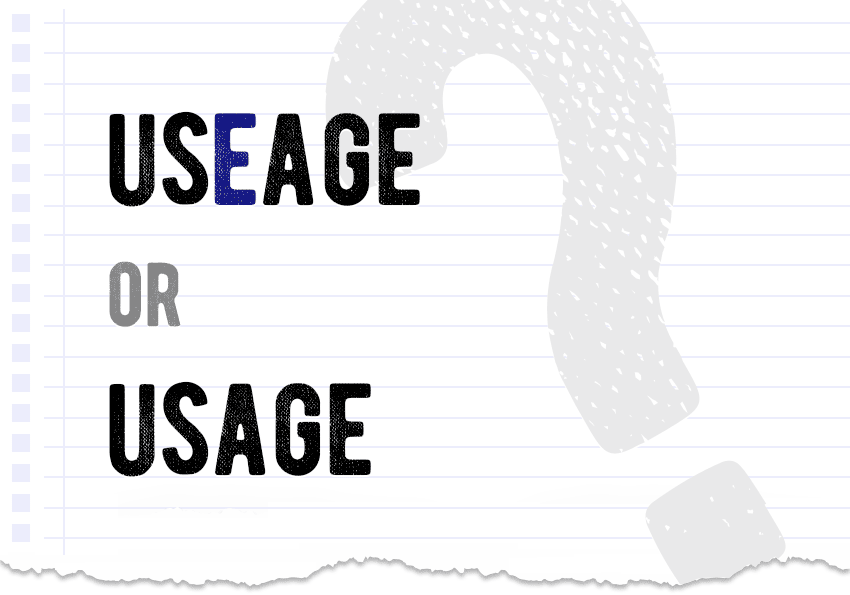Useage or usage – which is correct?
Non-native speakers are often confused by this word. Even native English speakers are uncertain which word is the right one. Is is useage or usage? Let’s find out together!

Useage or usage – which form is correct?
The proper way to write down this term is usage. The other mentioned version – useage – is grammatically incorrect and shouldn’t be used. Useage and usage cannot be used interchangeably. There’s good usage, hard usage, ill usage, etc.
What’s the meaning of the word usage?
- Usage means the way in which words are used in particular contexts.
- Usage (noun) is correct use of language.
- It’s also the treatment of something or someone.
- Usage can be understood as the fact of being used or the action or using something.
- Usage is customary practice, especially as creating an obligation, right, or standard.
- Sometimes, it refers to the degree to which something is used (parts of some machines can wear out, water usage can be small or high).
- Usage also means habit or accepted practice.
As you can see, there are various derivative usages of the word usage!
What’s the difference between useage and usage?
Write down useage and usage. You can probably feel that there’s something wrong with one of these written words. Usage has one letter less than useage. The letter ‘e’ is useless in this case. People keep getting those two words mixed up, because they remember that the verb use ends with ‘e’. Sometimes, people think that adding ‘age’ to ‘use’ without changing anything is fine. It isn’t!
What are similar words to usage?
We can find a few related words:
- use,
- utilisation,
- operation,
- consumption,
- manipulation.
Useage or usage – it’s all clear! Examples from literature
This raises the question of how a careful writer can distinguish a legitimate rule of usage from a grandmother’s tale.
Steven Pinker, The Sense of Style
It was his usage, then, not Koyré’s, that Butterfield adopted with some discomfort, believing that it would already be familiar to many of his listeners and readers.
David Wooton, The Invention of Science


